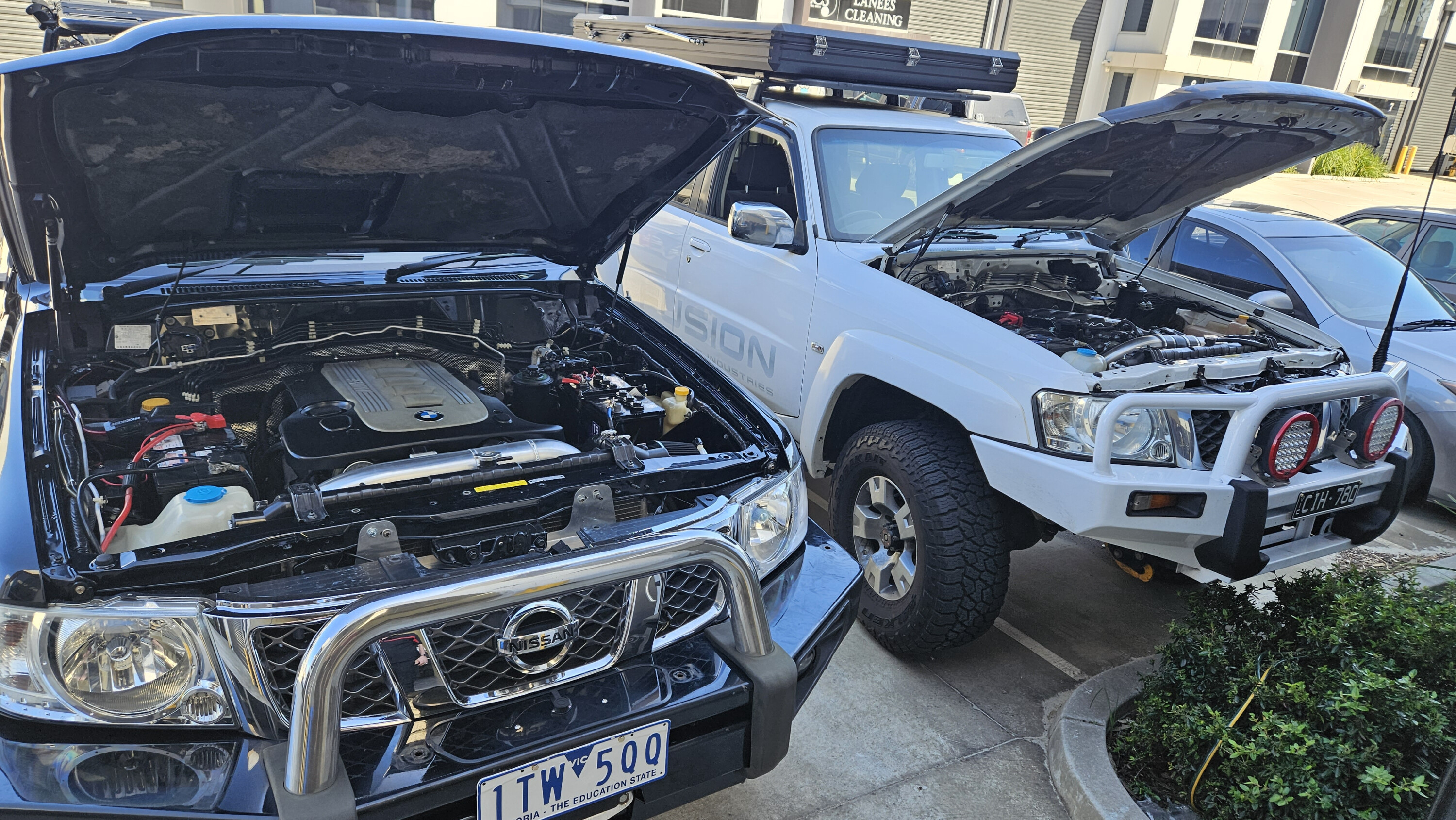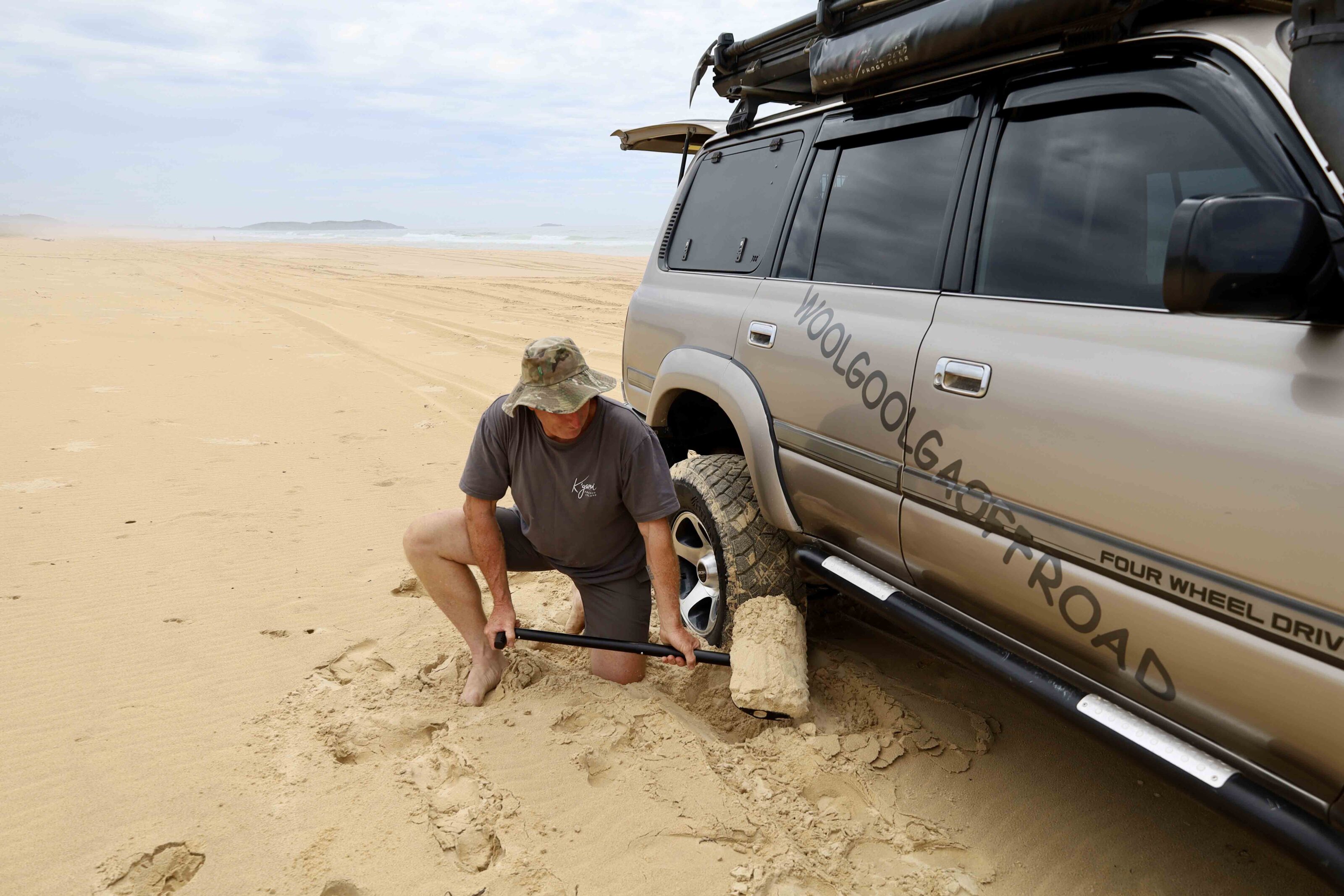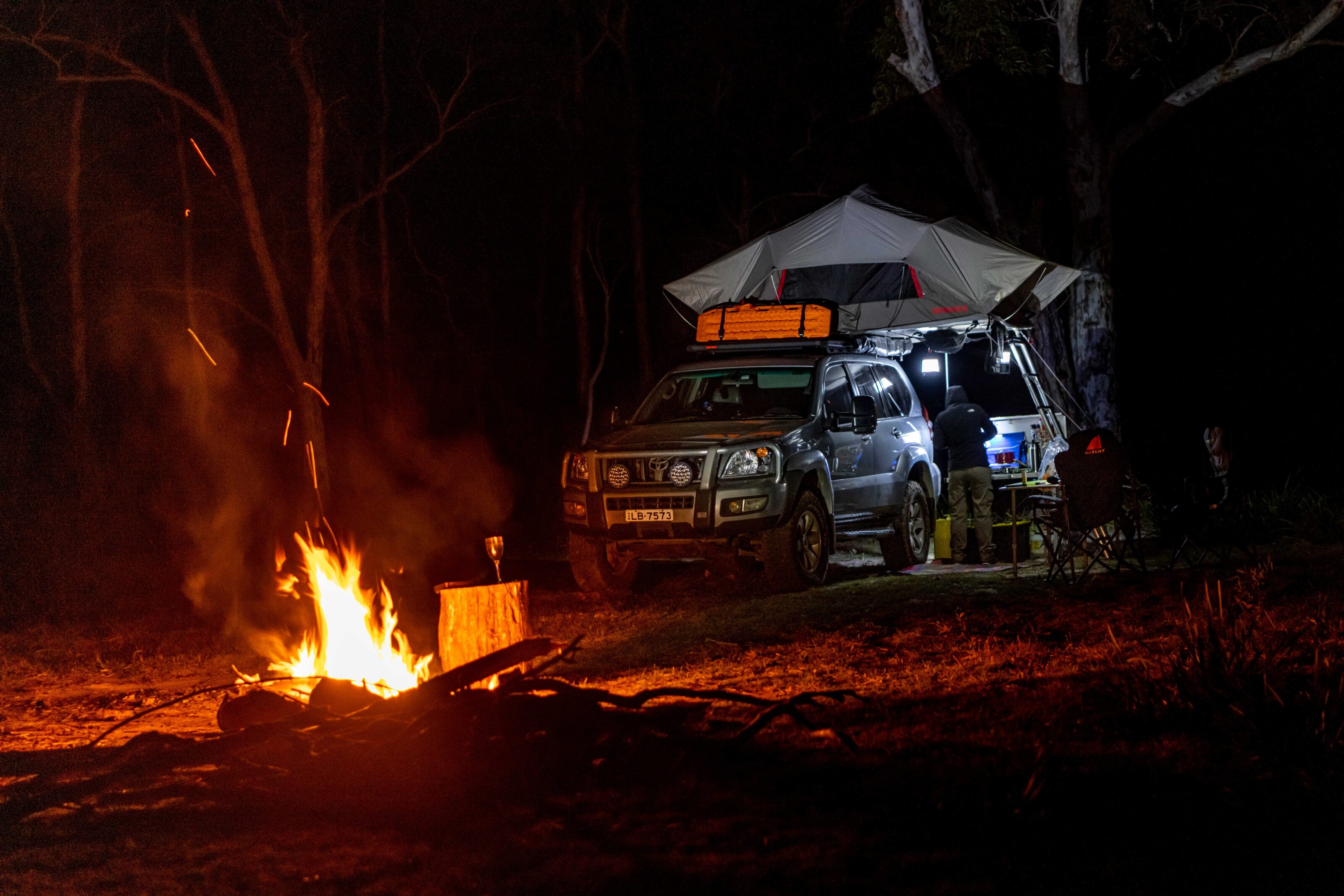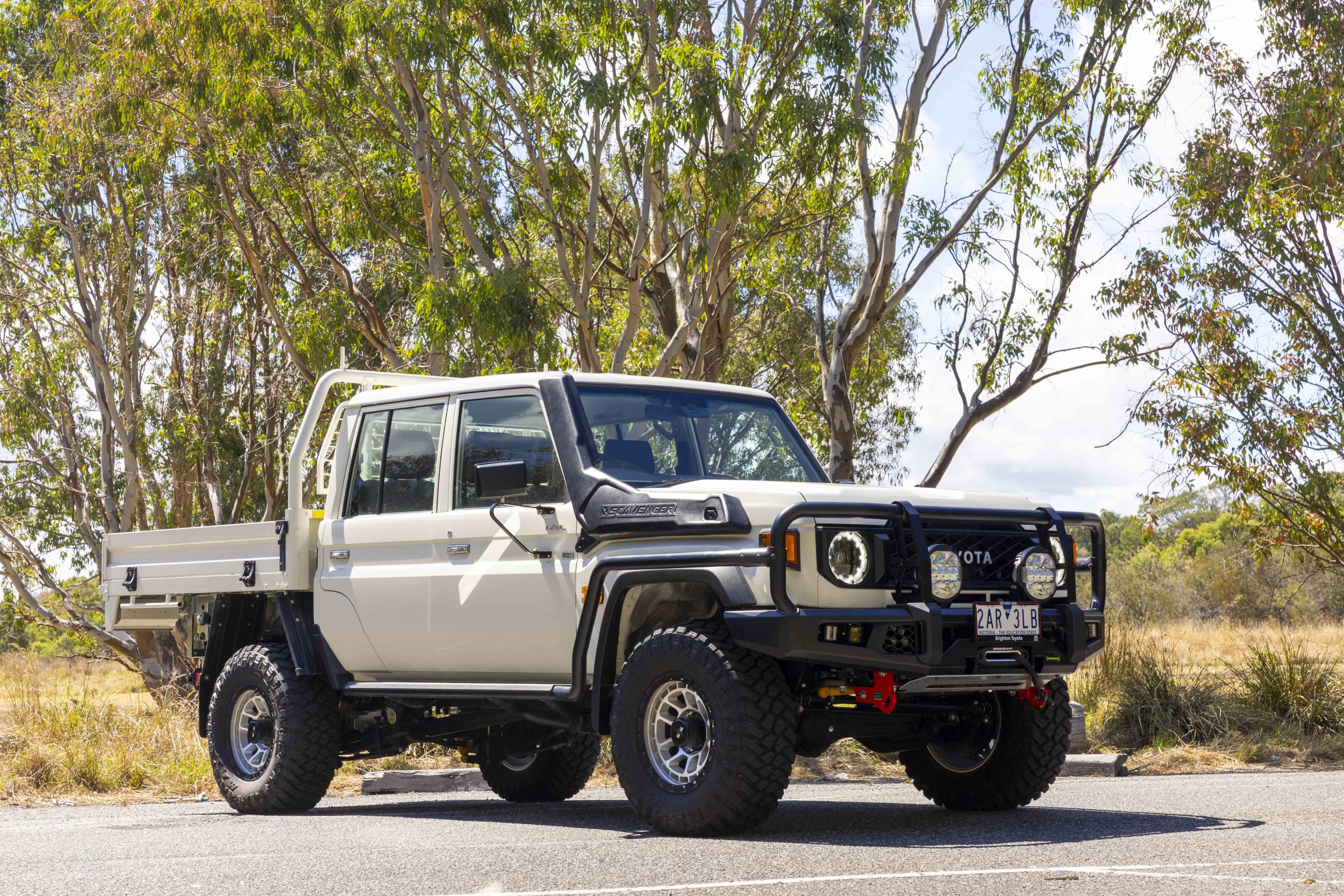Why would you want to sully your beautiful Japanese or British steed with some Eurotrash engine from a BMW, the manufacturer known for oil leaks and a lack of reliability? Because the M5s isn’t like a lot of other Beemer engines. In fact, it’s pretty bloody brilliant for 4X4 applications.
In short, it’s a six-pot, DOHC, turbocharged, common rail injected, 3.0L diesel, and it has a strong aftermarket following thanks to our cousins from Europe who have been throwing them into Land Rovers for the past decade or so.
The bottom end features forged rods and is proven to handle up to 1300Nm of torque in stock form. The head is capable of flowing upwards of 260kW with turbo and fuel upgrades. The CP3 high-pressure fuel pump is also found (in slightly different form) on the 6.7L Cummins and 6.6L Duramax engines in the big-boy Chevs and Rams.
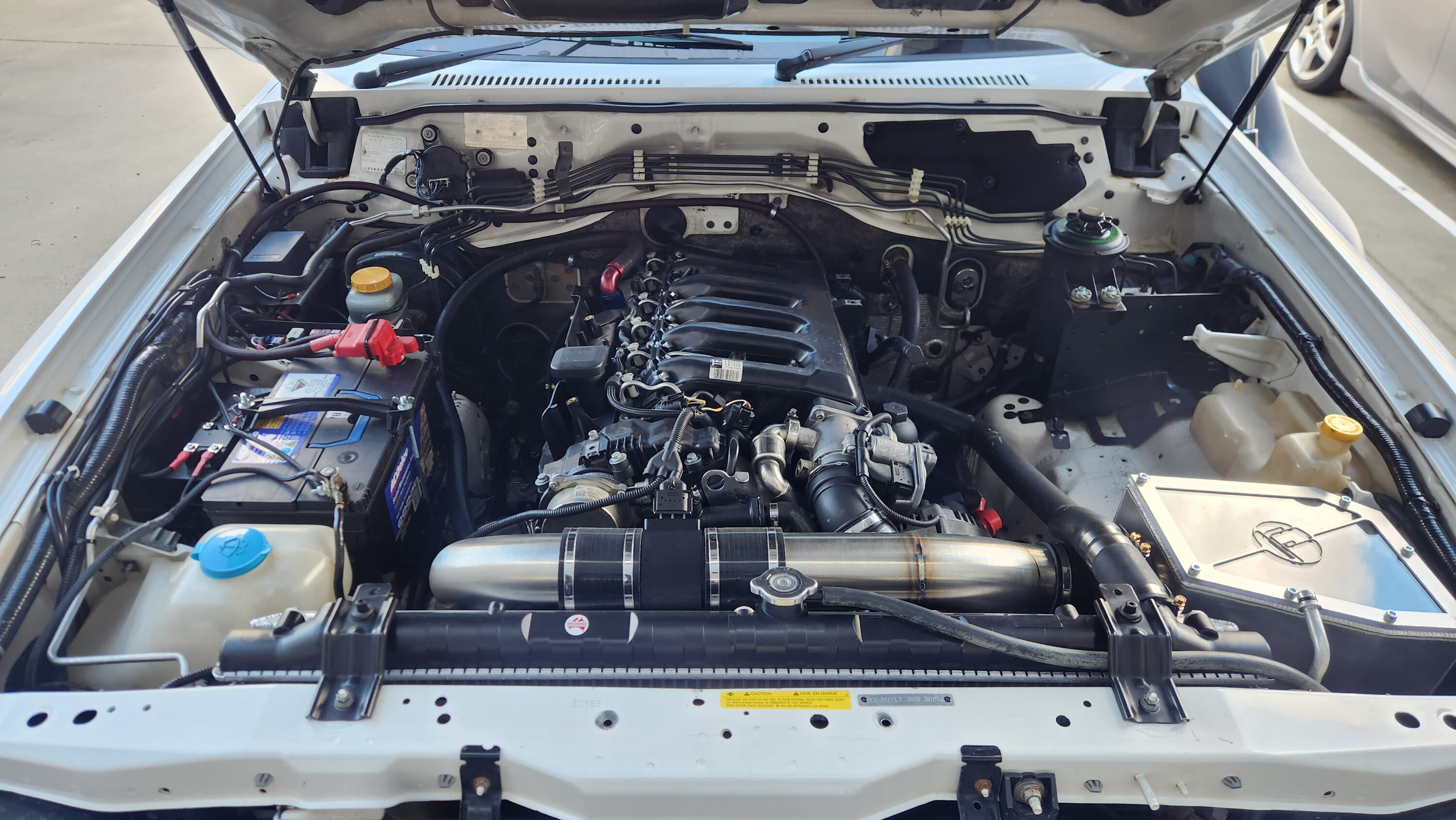
Put simply, the M57 is overbuilt, powerful, reliable, fuel efficient (10L/100km is commonly achieved with gentle driving) and capable of being upgraded into an absolute ball-tearer if you’re so inclined. Oh, and they’re relatively cheap to buy and maintain too.
Now it’s not all puppy bellies and free seafood, the TD42s and 1HZ engines will still be able to put out as much or more torque due to their larger displacement, but the M57 absolutely kills them on power; 190kW is easily achievable with nothing more than a tune, and you still get a pretty darn impressive 600Nm from the same mod. Tally up how much it’ll cost to get your Nissan or Toyota engine to that level and these things start making a lot of sense. So yeah, pretty much the ideal engine for a lot of us, and there’s no real downside to shot-putting one in the direction of your rig.
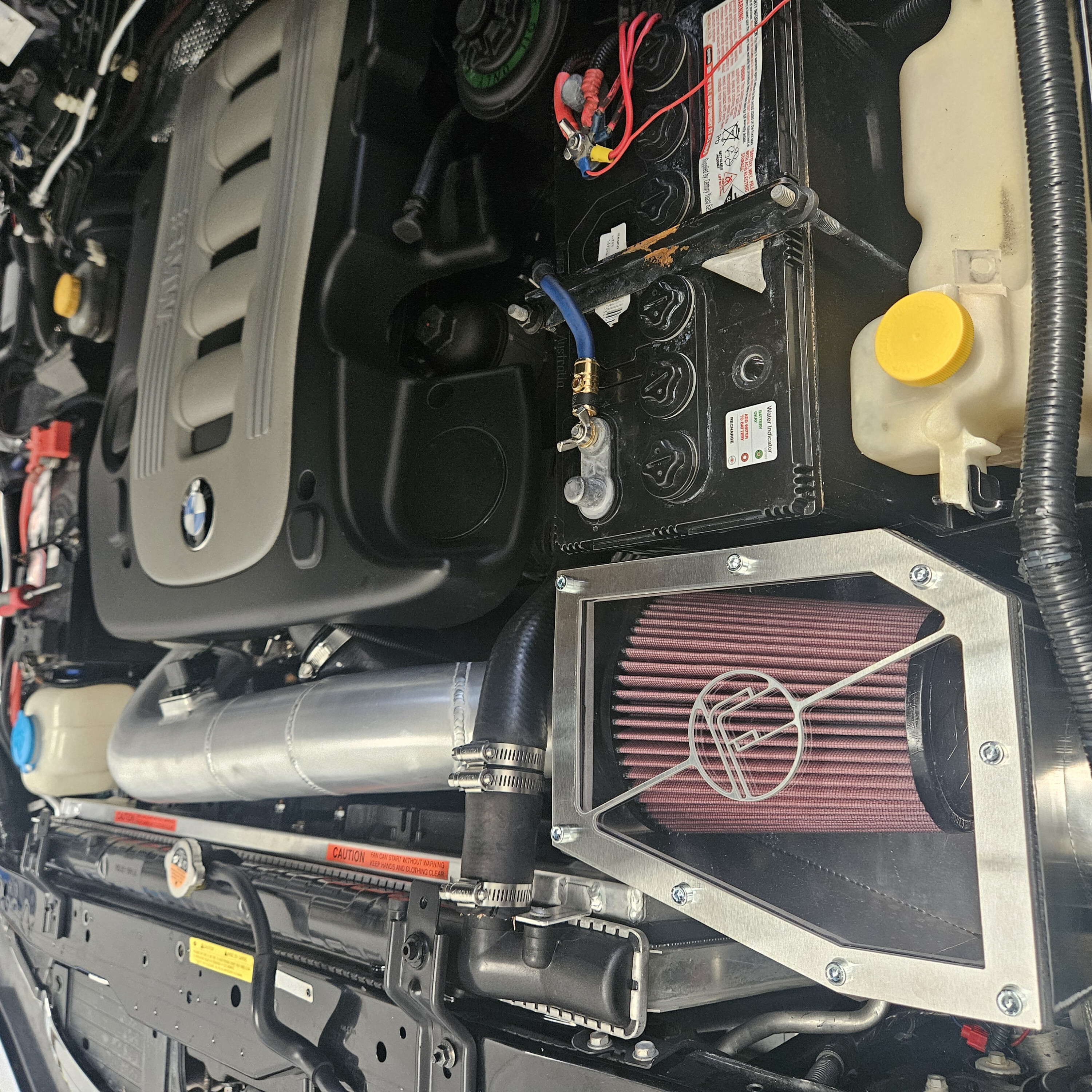
Model differences
TL;DR: the engine you probably want is found in the 04-06 BMW X5s. Oh, you want more detail? Cool, strap in.
Before we start, we should point out that M57 came in a variety of BMWs, from the 5 Series, E60, E90… the list goes on. To keep this yarn to a reasonable length we’ll just focus on the most popular vehicle for the swap, the BMW X5, which can be picked up from as little as $3500.
The M57 first came out in 1998 and stayed more or less the same until 2003. This 137kW model (with a narrow bellhousing) came with a five-speed auto. Some X5s even came with a six-speed manual box, but these are as rare as hen’s teeth and are pretty pricey as a result.
The pick of the bunch is the ZF 6HP which is a highly regarded six-speed auto that’s strong as buggery and is silky smooth.
If you’re feeling really sporty you could go for the ZF 8HP which is an eight-speed ’box, but while arguably the best transmission available for the engine it also has a lot more wiring to suss out, and adds about $8k to the conversion total.
The wider bellhousing model M57 arrived in 2004 (M57TÜ or M57N) in the E53 X5 and was available until 2006. This is generally considered to be the easiest engine for conversion and there’s the perceived advantage of its strong iron block, and it’s a single turbo, so straightforward to upgrade if required. From stock these models put out north of 150kW and around 500Nm.
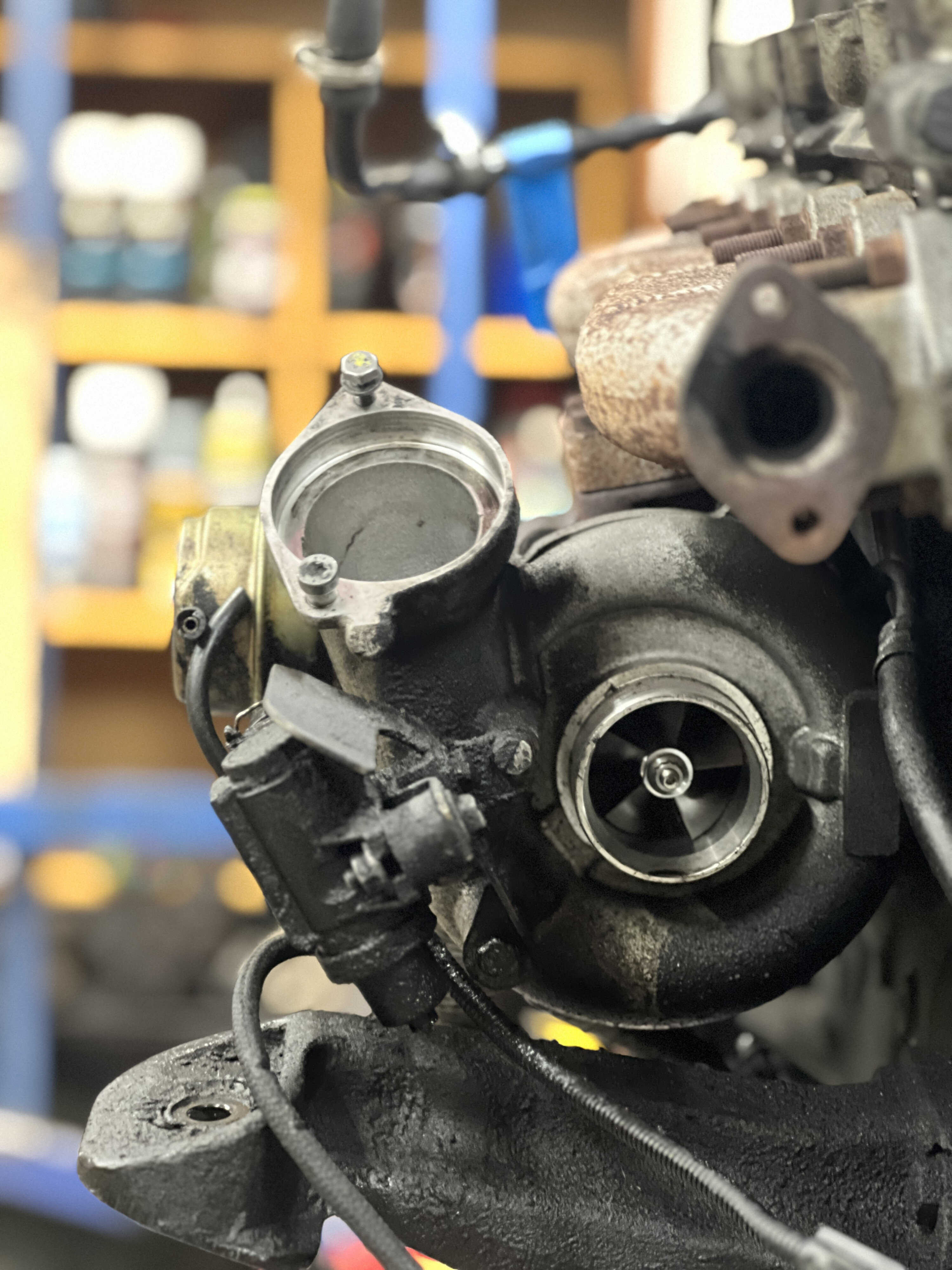
2007 to late 2009 saw the introduction of an alloy block M57 (M57TÜ2 or M57N2) in the E70 X5, which saved 50kg on the scales but is seen as a potentially weaker starting point if you’re planning on throwing some big numbers at it.
With that said, there are quite a few of these around putting down some serious power and holding up without drama, so don’t be too deterred. They also come with piezo injectors rather than the solenoid injectors of the M57TÜ engines. While the piezo injectors are more reliable and efficient, they’re also unable to be rebuilt and the nozzles can’t be upgraded to produce more power.
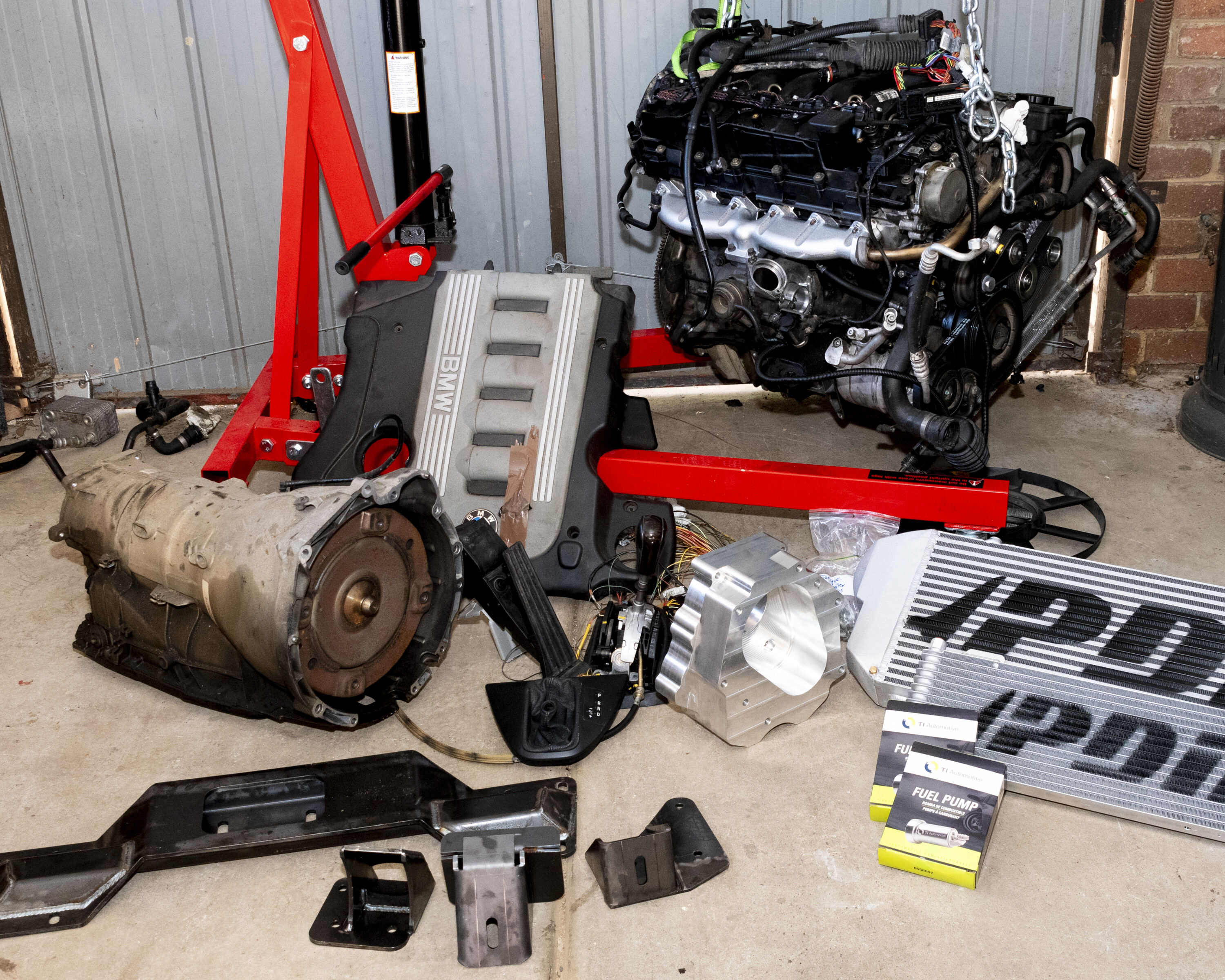
Speaking of power, the E70 X5 (30SD and 35D models) came with the option of a twin-turbo M57TÜTOP engine featuring a pair of smaller BorgWarner huffers on the side.
They’re more difficult to fit but many prefer the extra power (200kW stock and a bunch more available with just a tune) despite the increased complexity of the installation. For the simplest option with the least headaches, we recommend you grab an ’04 to ’06 E53 X5 diesel with low mileage.
Things to watch for
EGR/DPF issues
This isn’t as much an M57 problem as an every-modern-diesel issue, but the M57 still can have problems with its emissions countermeasures. We’d tell you to do yourself a favour and ditch the EGR and DPF, but that would be promoting illegal activity which we’d never do. Moving on…
Swirl Flaps
Located in the intake, these are designed to optimise the air-fuel ratio however they are known for failing and dropping their mounting screws into the combustion chamber, causing potential carnage. Delete kits are cheap and one of the first mods to do if your engine has them.
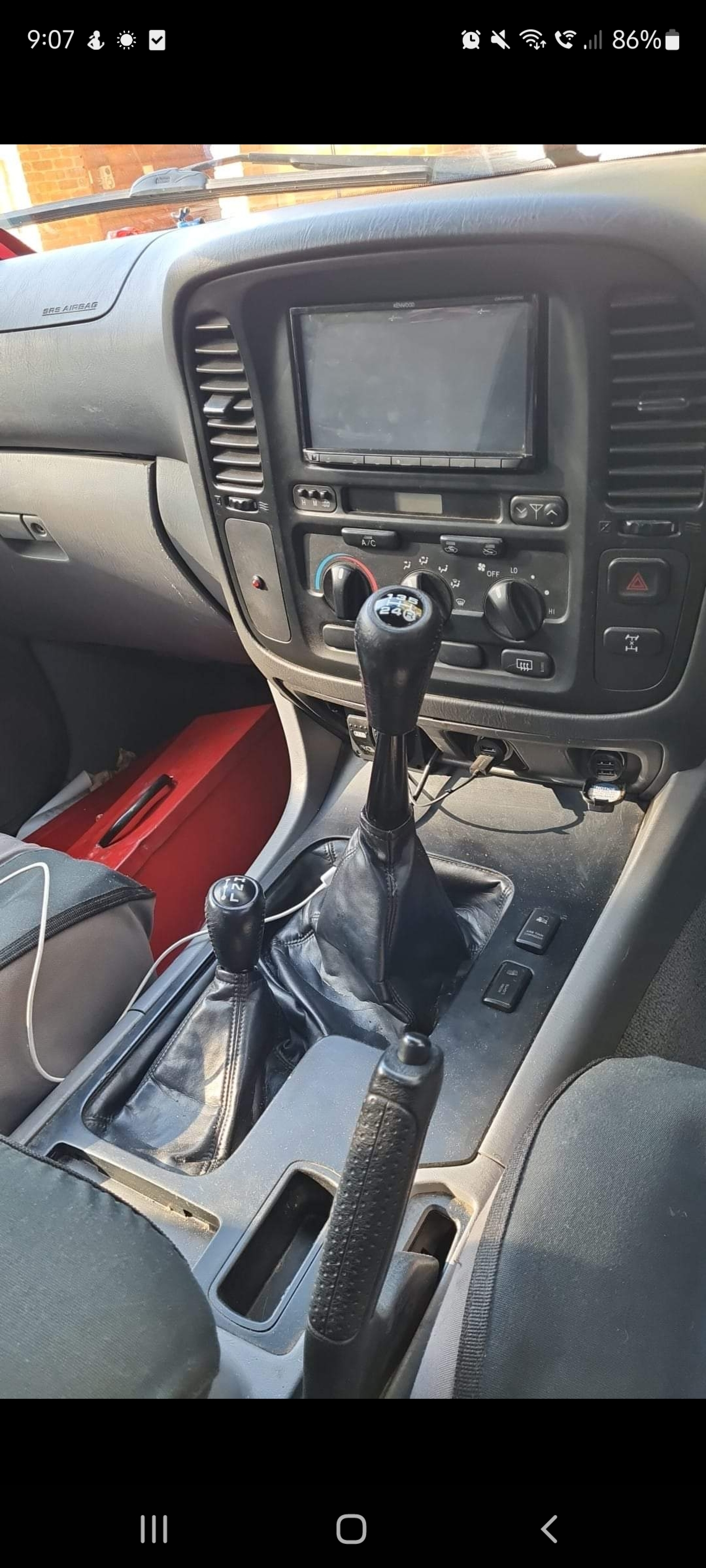
Valve springs
If you’re chasing north of 225kW, the valve springs will need upgrading. They’re quite soft and can cause problems, especially with worked engines.
Timing chains
Not an issue really; in fact there are many 500,000km engines getting around on stock chains, but if you’re pulling your over-300,000km M57 out anyway, throwing new chains at it is good preventative maintenance.
Exhaust manifold
On the M57TÜ BMW went for a stainless exhaust manifold which is known to crack. Replacement with a cast manifold is the fix.
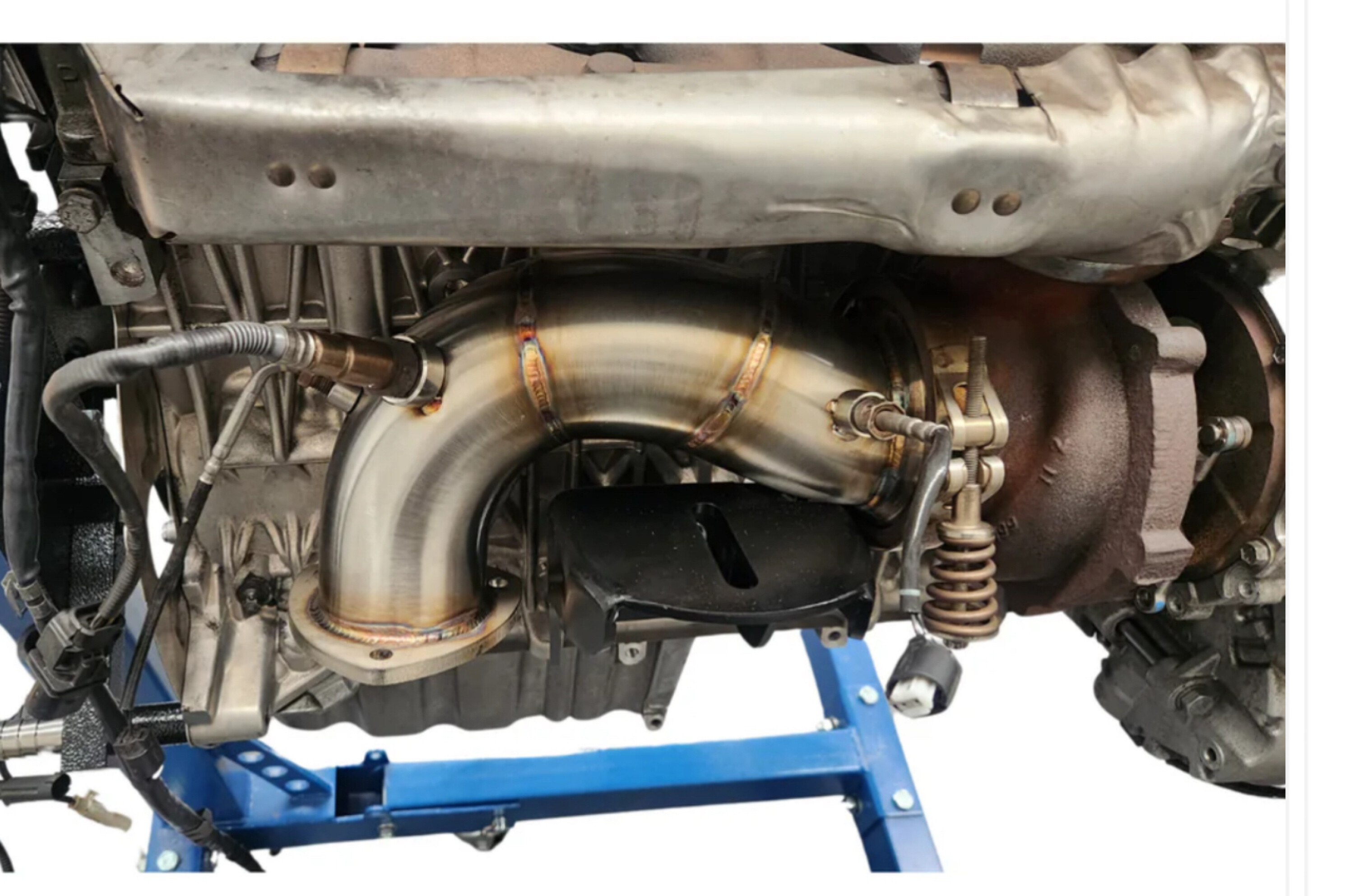
Glow plugs
Again, as preventative maintenance the glow plugs and glow plug module are common causes of faults. They’re easier to swap out on the stand than in the vehicle.
Leaks
The sump, rear main seal, valve cover, oil filter housing and injector washers and seals should all be swapped out when the engine is out. They’re not really known problem areas, but you’d be nuts not to do them on a 15+ year old engine while it’s all easily accessible.
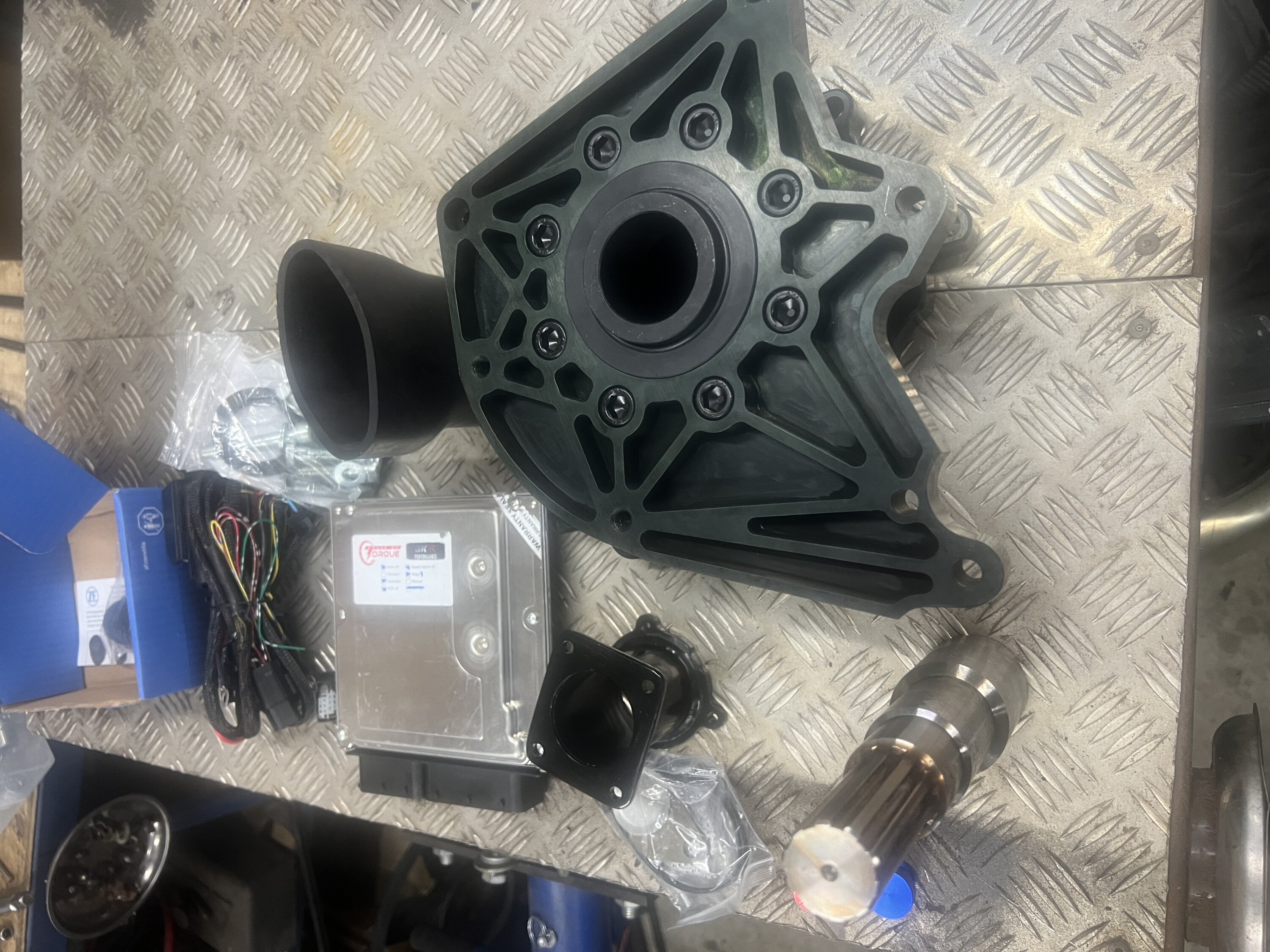
Getting it in there
Before breaking out the torque wrench and oxy torch, there are a few things you’re going to need (other than the engine, ancillaries and transmission, duh) to make your conversion go smoothly. Ash from Fusion Fab gave us the rundown:
- ECU and complete engine harness “A” (this is marked on the BMW wiring, but it’s basically the engine side of the harness).
- Throttle pedal, including the pedal-position sensor.
- Electric fuel pump (and filter if you’re planning on running BMW filters), located on passenger frame rail about halfway down.
- Transmission shifter and wiring harnesses for both the transmission and shifter.
- Lines to transmission cooler (which are possible, but not mandatory, to re-use).
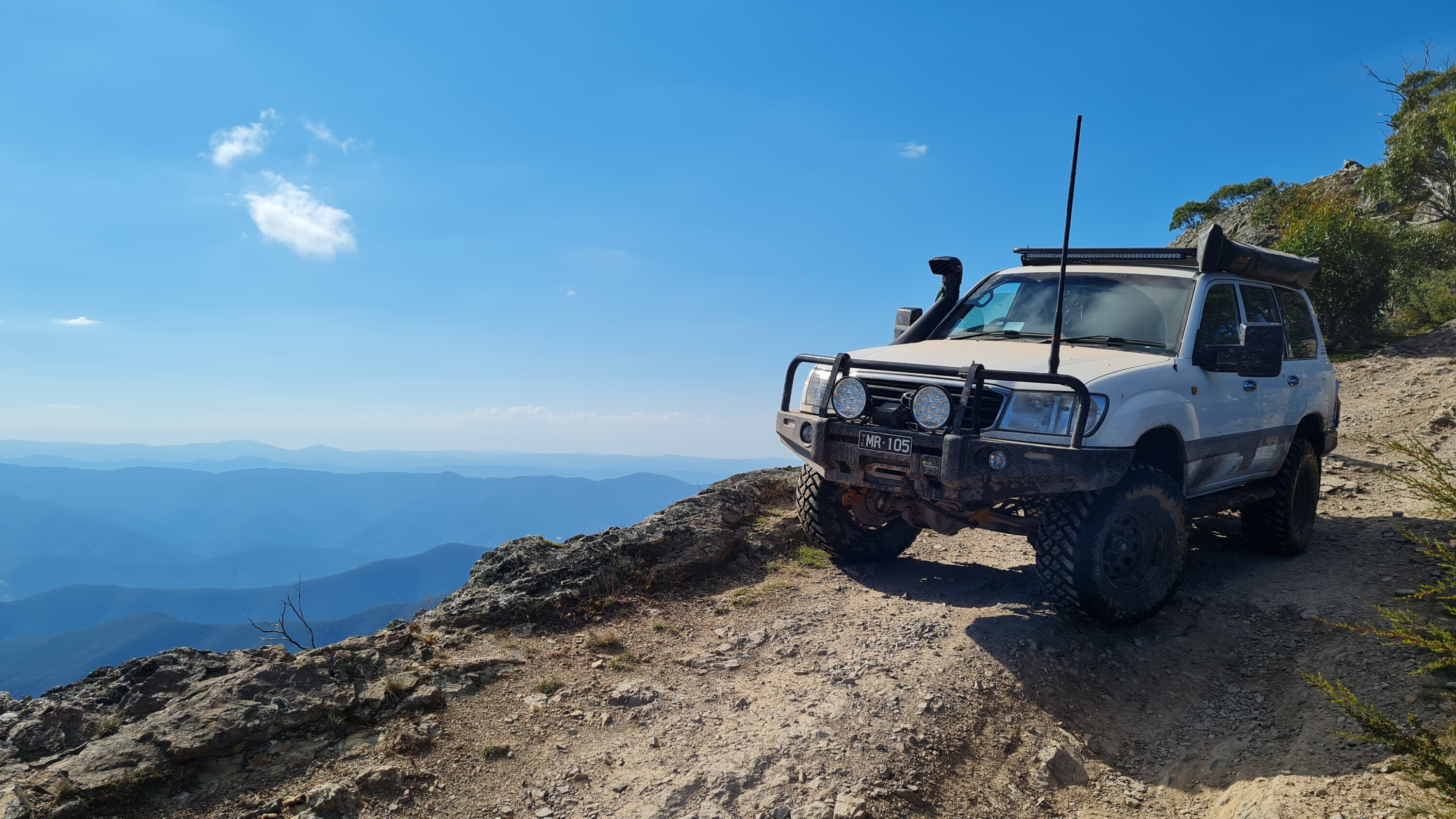
Patrols
Adapters & Mounting
- All mounts are available through Fusion Fab – engine mounts may require chassis welding depending on the model of Patrol you’re converting. Fusion Fab prefers to use stock Nissan mounting rubbers.
- The Fusion Fab transfer case adapter allows for stock driveline lengths to be kept and the standard transfer case to be run.
Wiring
- Fusion Fab sells a standalone wiring harness that connects to the stock BMW engine and transmission harness.
- The stock BMW ECU will require the immobiliser to be tuned out, as well as EGR and DPF if you’re getting rid of them. While you’re there, an easy 185kW is available from the M57N and even more from the M57N2, all from stock, so there’s no real reason not to.
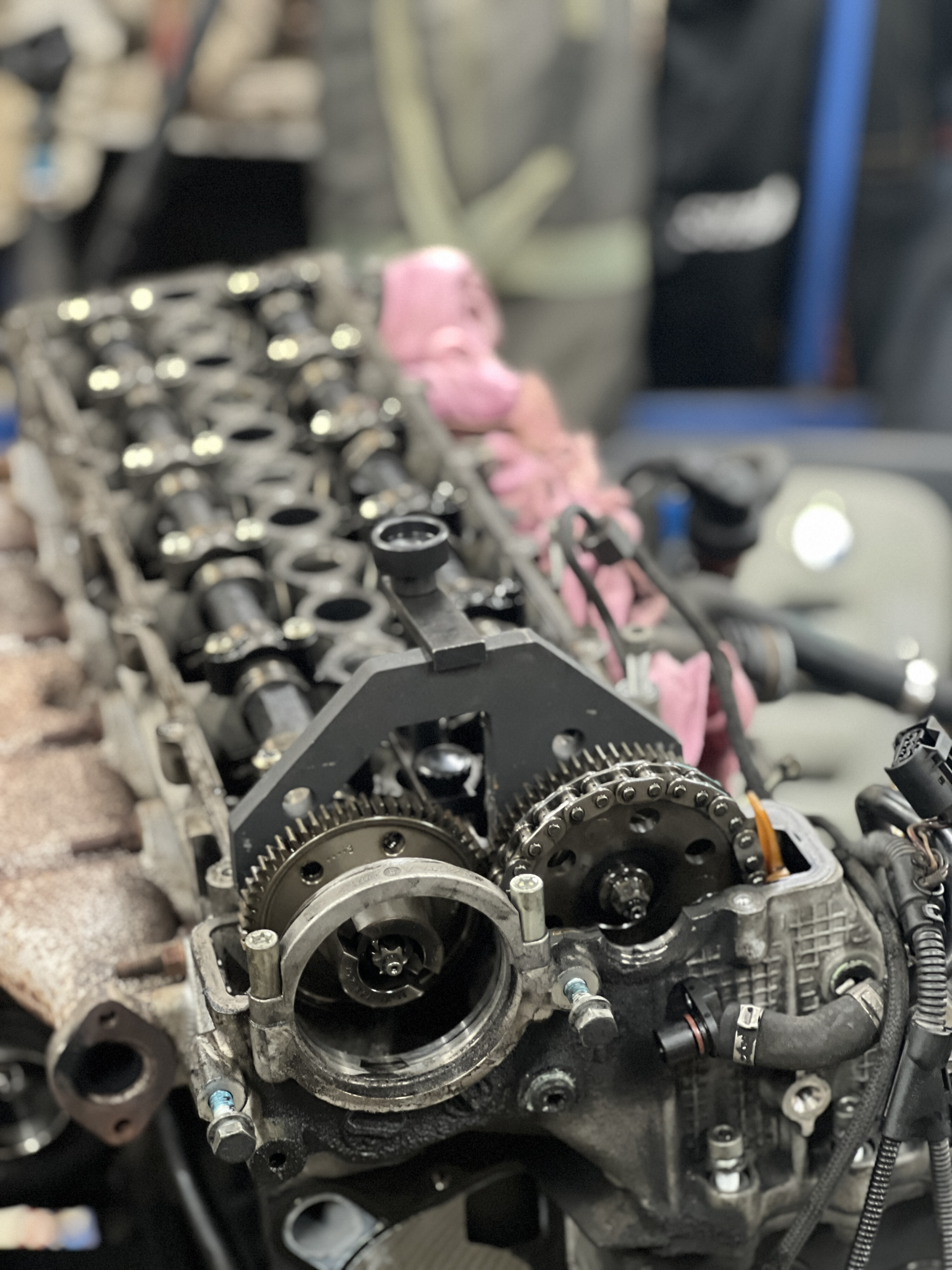
Cooling
- A stock TB45 radiator and fans are enough to keep the engine comfortably cool.
- Aftermarket intercooler required.
Exhaust
- Will have to be custom built, or pieced together from an aftermarket Patrol exhaust with custom downpipe (Fusion Fab again).
Options
- CANBUS module – allows the BMW system to talk with the Nissan stuff, and provides things like gear position indicator and tacho signal etc.
- Steering box spacer – for use with twin-turbo conversions.
- PCV breather plate – for use with single-turbo conversions.
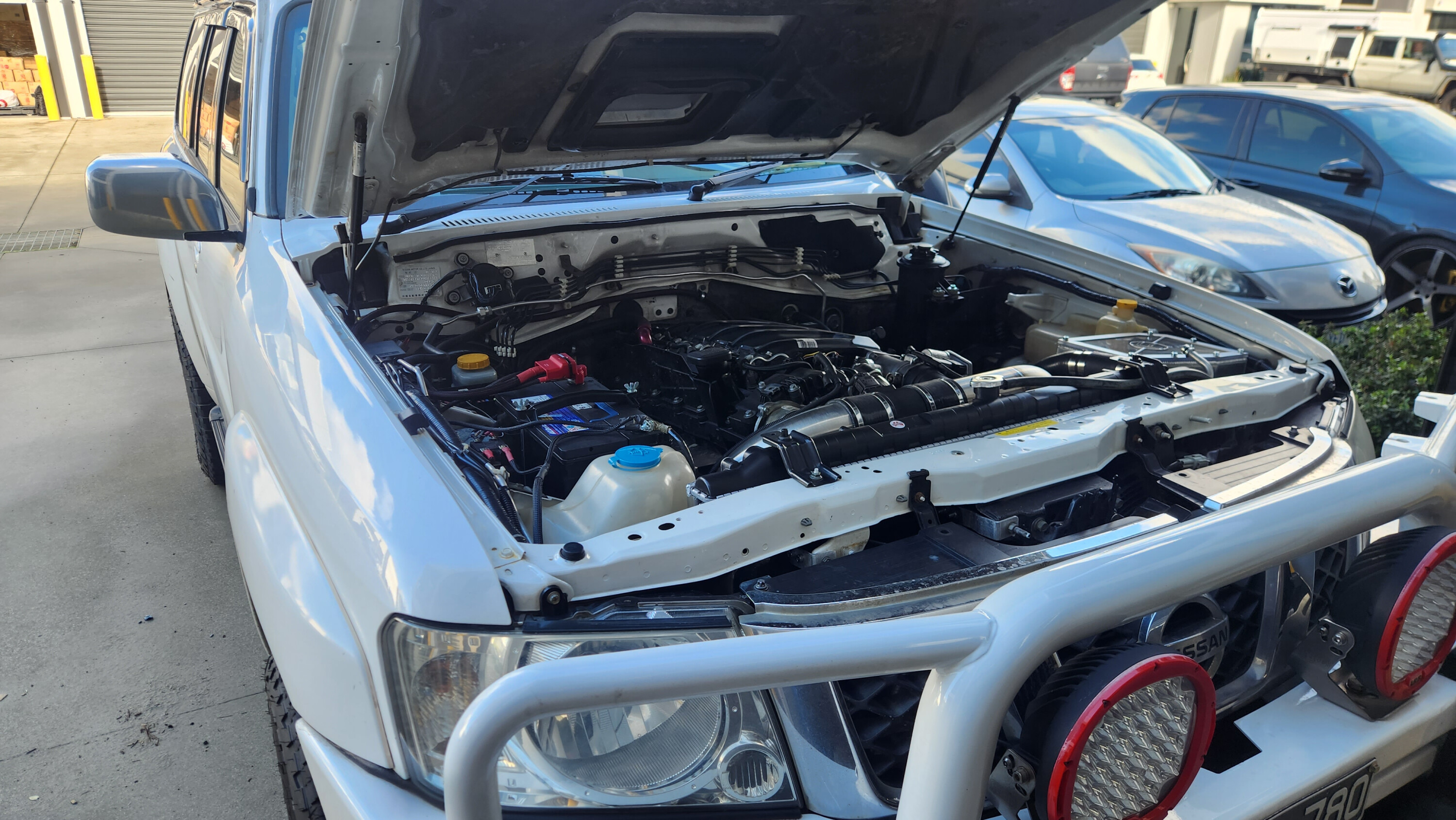
LandCruisers
Adapters & Mounting
- Engine mounts and transmission crossmembers available through McKinnon’s Cruisers.
- Adapter to HF1A and HF2A Toyota transfer cases available from Fusion Fab.
Wiring
- Standalone harness available through Fusion Fab.
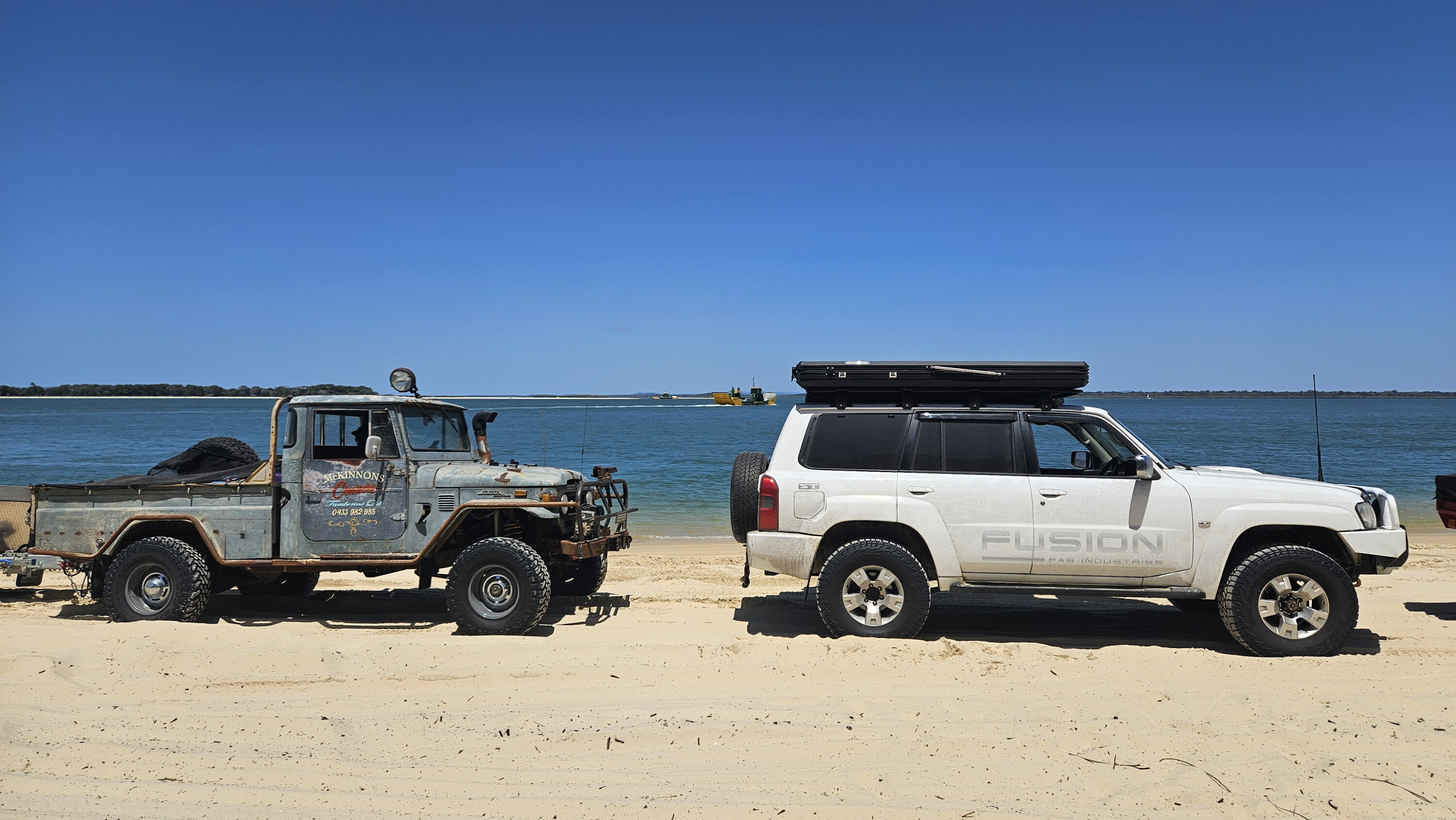
Cooling
- Stock petrol Cruiser radiators with aftermarket fan set-up or BMW clutch fan with custom shroud are up to the task.
- Aftermarket intercooler and piping required.
Exhaust
- Custom dump pipe required for 3-inch-plus systems. Can use BMW dump pipe to 2.5-inch aftermarket or stock exhausts.
Options
- Aftermarket airbox beneficial.
- Intake and exhaust on same side as factory stuff, so makes it easier.
Land Rovers
Adapters & Mounting
- All adapters and mounts (for Defender) available through House of Torque. For Range Rover and Discovery, custom engine mounts will need to be fabricated.
- Defender can use Puma tailshafts to work, Discovery and Range Rover will likely need custom length shafts built.
Wiring
- Standalone harness available through House of Torque.
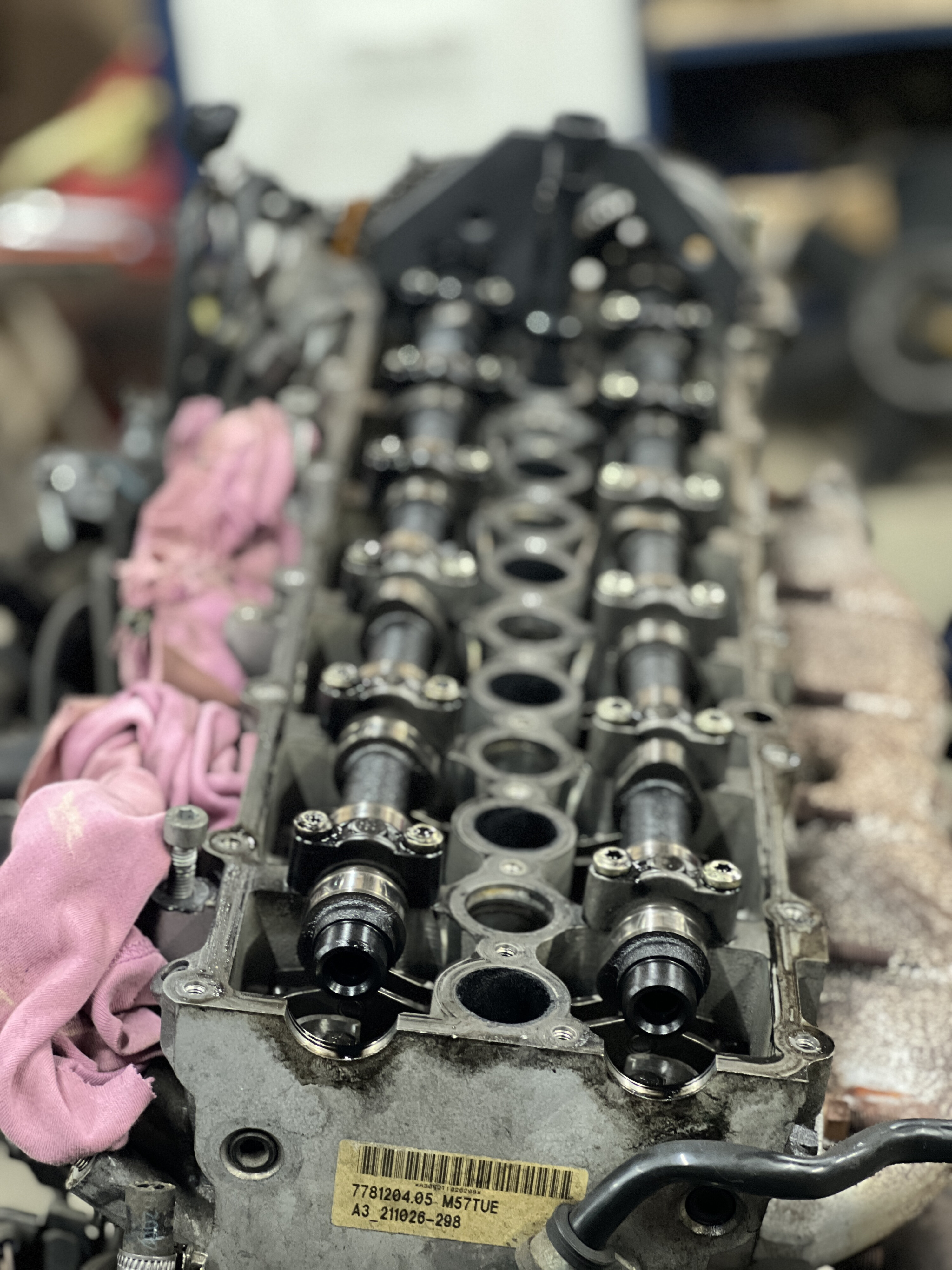
Cooling
- TD5 radiator and intercooler pack has been shown to work, although upgraded Allisport unit is preferable. More options for Defenders.
Exhaust
- BMW dump pipe into factory TD5 exhaust or full custom 3-inch-plus system.
Options
- P38 steering box conversion – moves box from inside chassis rail to outside, allowing more room for engine fitment.
Other vehicles
Adapters & Mounting
- Custom engine mounts and transmission crossmembers will be required.
- Recommend fitting Patrol/Cruiser/Land Rover transfer to enable BMW transmission to be adapted with custom tailshaft.
Wiring
- Custom adapting plug and play harness from Fusion Fab.
Cooling
- Case by case, but as large a radiator, intercooler and transmission cooler as you can fit.
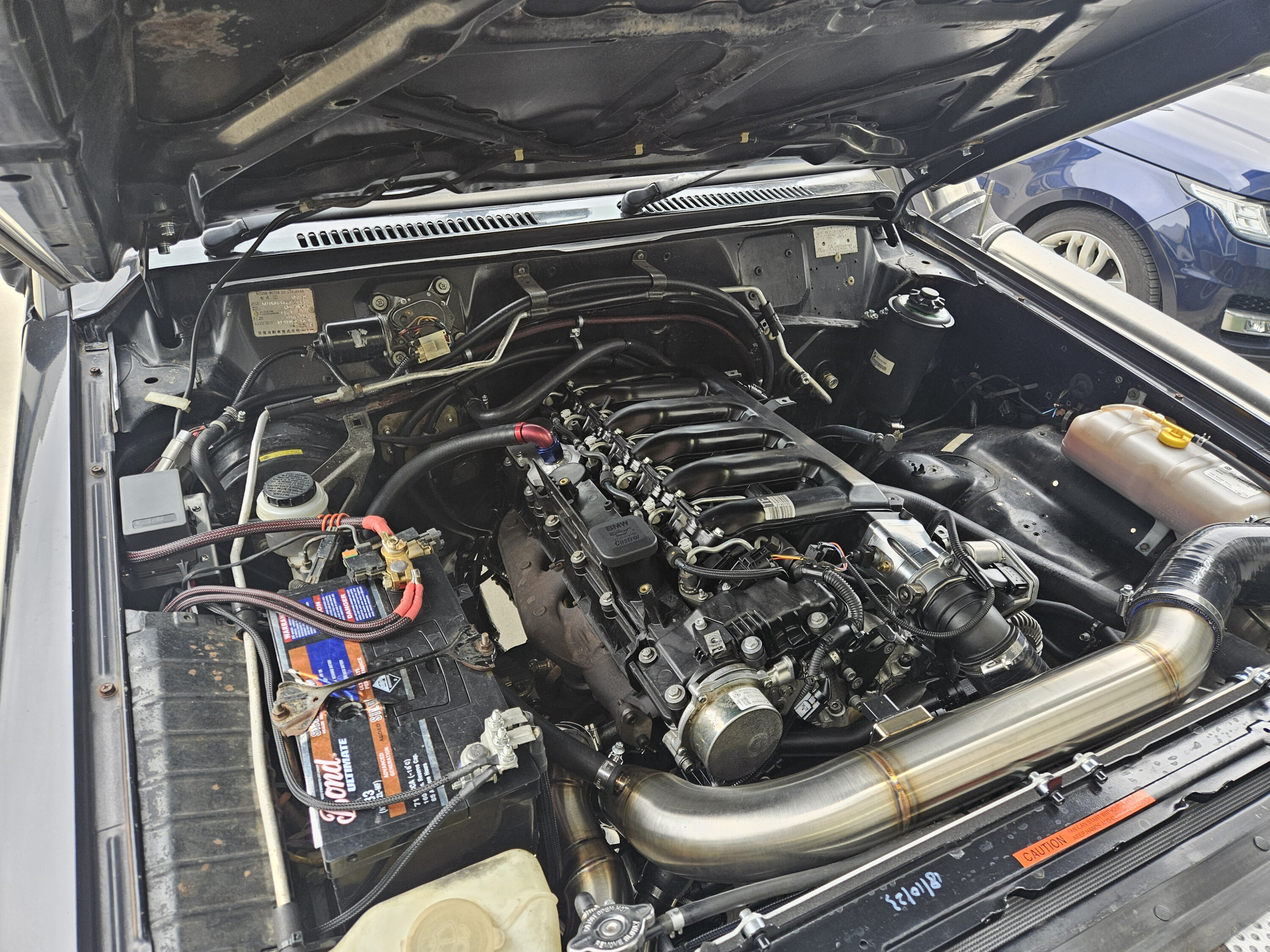
Exhaust
- Yep, custom baby, although Fusion Fab dump pipe could potentially be routed into aftermarket 3-inch exhaust.
Options
- As above. Steering, AC lines, intake routing and probably several other things will need to be considered.
Power hunting
Chasing big power from an M57 is definitely possible, but when you can net a fairly easy 220-260kW from an M57N2 twin-turbo, not many folks bother looking for more as fuel use and reliability inevitably take a hit.
However, if we had to break it down by the usual means of making diesels sing, it’d go a bit like this:
Tune
Getting a tune should be first and foremost as it’s the easiest way to grab a sneaky 20-30 per cent more power and torque without affecting reliability or fuel use. Keep in mind that any injector, turbo or pump mods will require an updated tune to make the most of them.
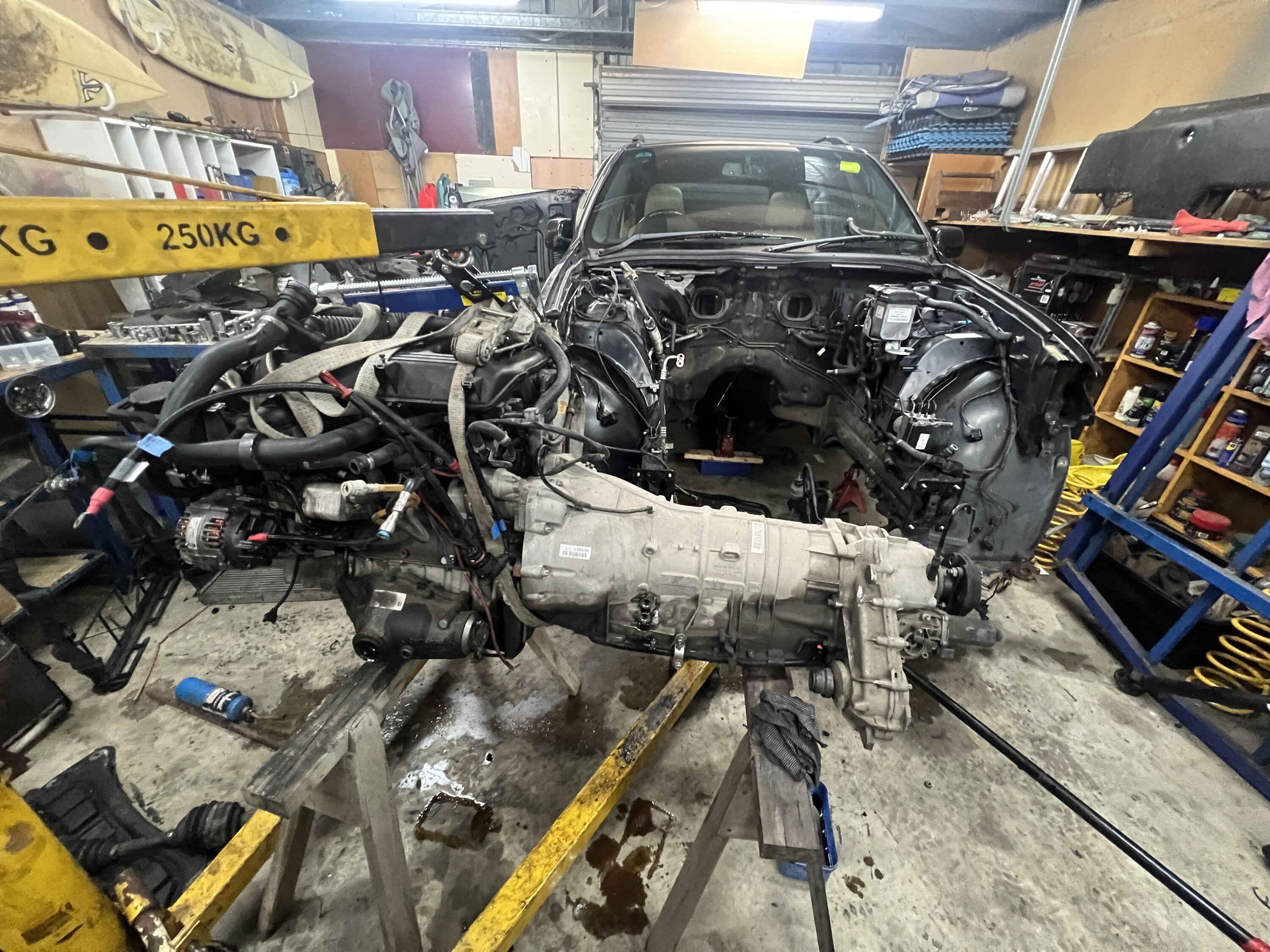
Injectors
The piezo injectors are good for around 335kW, so no real joy there. The solenoid injectors can have larger nozzles from a 535D fitted but even then you need a turbo upgrade to get it working properly.
Turbos
Much over 220kW and the single turbos start becoming a little lacklustre. A popular upgrade is the Garret GTD2872VR which can handle up to around the 300kW mark. Bigger turbos can provide more, but then you’re looking at serious porting and strengthening work of the internals.
Valve springs
Chasing more than 220kW? The stock valve springs will need upgrading.
Pumps
Curiously, the M57N2 came with the smaller R70 (1600 bar rail pressure) pump while the M57N came with the larger R90 (2000 bar rail pressure). If more power is required from your M57N2 an R90 upgrade can be beneficial.
Just a reminder, these CP3 pumps came out in Duramaxes and 6BTs, so they’re no slouches. With that said, twin pump kits are available if you want to do your best to destroy the dyno.
Intercooler
The larger the better, really. You can’t freeze your intake charge. Fun fact: Gale Banks ran straight nitrous-oxide rather than an intercooler in his drag Duramax. Different engine, but the point is the same; the cooler (aka denser, aka more oxygen-rich) the intake charge the better it is for your available power output.
Cams
Cams and head studs can be fitted without removing the head, although once again, this is for race-spec builds trying to get every last ounce of power out of a rig rather than for people who want enough under the right boot to comfortably get across the Simpson without worrying about getting up the taller dunes. Horses for courses, folks.

Parting thoughts
If you’re looking for an engine that has the holy trinity – power, reliability and economy – then the M57 engine is pretty close to bang-on.
A short (only 700mm or so long) straight six that’s torquey, has enough power for pretty much anything and won’t be a Chuck Norris roundhouse to the wallet every time you hit the servo. The M57 is also matched to one of the nicest six-speeds in the game (same ZF box as in the Barra turbo), or an eight-speed which is arguably the ideal 4X4 transmission.
Importantly, a whole BMW X5 can be had for a few grand, giving you the engine, transmission and the majority of the wiring needed.
Entire conversions have been completed for less than $10k, which is roughly what a 3.8L Commodore V6 used to cost 20 years ago, so the value is right up there. Could this be the next big thing in hot-rodded diesels? We reckon it could be, yeah.
Some note title here
Big thanks to Ash and the Fusion Fab Industries team for their expert knowledge and help with this article.
Fusion Fab Industries: www.fusionfabindustries.com.au [↗️]
McKinnon’s Cruisers: www.mckinnonscruisers.com [↗️]
House of Torque (UK): www.house-of-torque.com [↗️]


